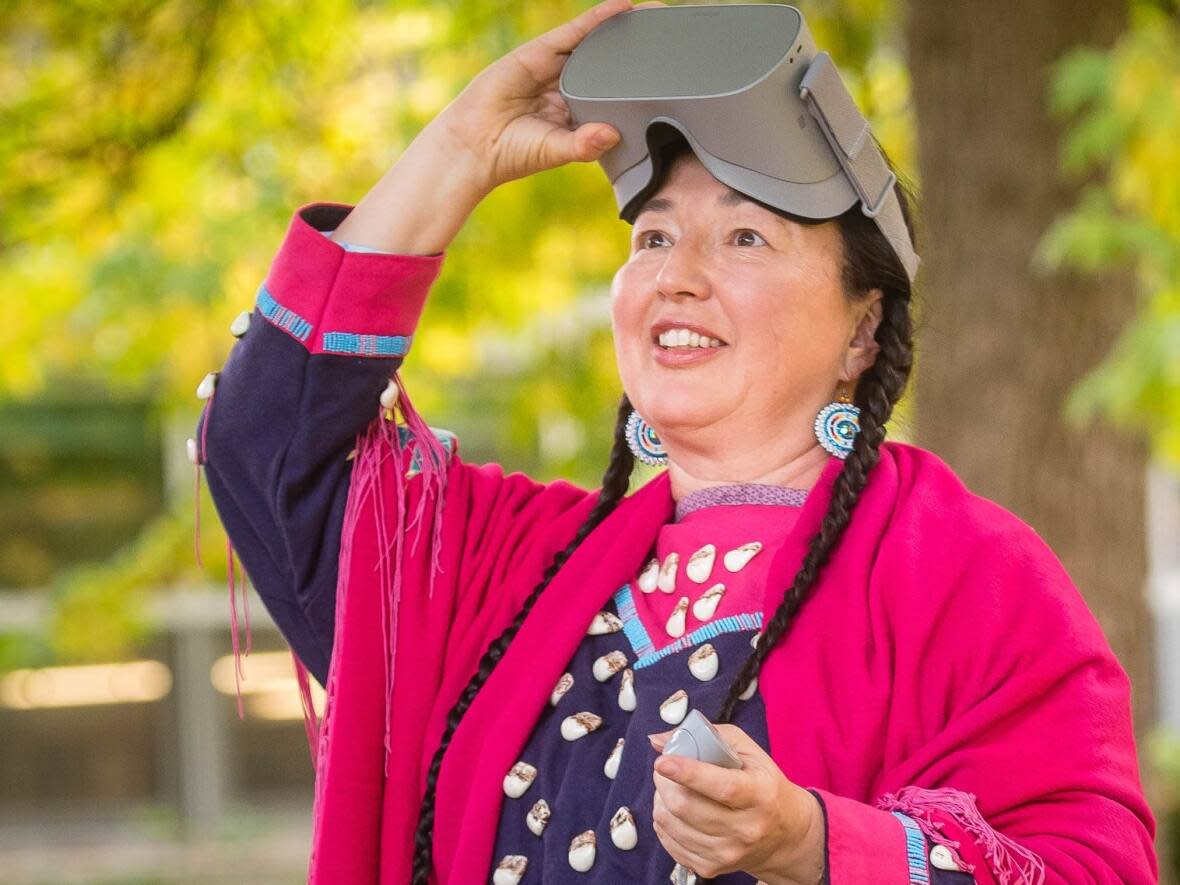How AI and immersive technology is being used to revitalize Indigenous languages

Researchers on Vancouver Island are working on innovative ways, including artificial intelligence and immersive technology, to revitalize Indigenous languages.
Sara Child has been working to revive her language, Kwak'wala, on northern Vancouver Island.
According to estimates by the First People Cultural Council in B.C., there are only about 140 speakers fluent in Kwak'wala across more than a dozen First Nations.
Child, a Kwagu'ł band member and professor in Indigenous education at North Island College, says most of the speakers in her community are in their 70s and 80s.
She created the Sanyakola Foundation, which works with elders to find ways of passing on the language.

The language, she says, is inextricably linked to the land and wellness, and requires different ways of learning.
"After decades of being forcibly disconnected from the land and our lifestyle changes, many of our elders, the language of the land is trapped in their memories," Child said.
"And so we spent hours of work working with elders, trying to unlock that knowledge of the language of the land."
Child realized the need to tap into the vast archives of recordings of Kwak'wala gathered by anthropologists and other researchers over nearly a century.
With funding from MITACS, a government-funded non-profit that supports innovation, they are working to develop an artificial intelligence machine that will comb through those recordings and transcribe the language into usable resources.
"If we try to do it manually, it could take a whole team of people a virtual lifetime to transcribe it and rewrite it and get it into a usable format," Child said.
Most voice-to-text technologies are developed for English. While English is noun-based, many Indigenous languages like Kwak'wala are verb-centred, forcing researchers to develop their own recognition system from scratch.
The work can be challenging, but the potential reward could be huge.
"By building the technology tool, the speech recognition tool, we can tap into that amazing resource that will help us recapture and reclaim language that is trapped in archives," Child said.
Using technology for true language immersion
Caroline Running Wolf, a PhD student at the University of British Columbia, is designing immersive technology to teach Kwak'wala in a land-based setting — from anywhere.
Even though she speaks multiple languages, she always struggled to learn Crow, the language of her father's people in Montana, because she didn't live there.
She aims to use technologies, like virtual or augmented reality, to allow people to truly immerse themselves in a language.
"So just imagine if you could immerse yourself in a specific Indigenous culture and interact and speak with the elders, for example, as you embark on a virtual canoe journey through your home territory," she said. "So you'd be immersed, having fun, and learning to speak the language at the same time."
Running Wolf says the project, and the funding commitment from MITACS — $300,000 over three years — is a welcome change from more traditional academic research.
"It's Indigenous-led, it's Indigenous-directed, it's focused on Indigenous knowledge and perspective, and I'm just so excited about that because this is just such a shift in the usual way things are approached," she said.
She says traditional funders wouldn't have considered a project like this.
"They're still caught in that fake dichotomy of, on the one side there's Indigenous traditional knowledge and language, and on the other side of that dichotomy is technology. And that's just not true."
For Child, revitalizing language can be a path for healing. Once the technology is developed, she says it will be a tool for any Indigenous language revitalization project, anywhere in the world.
"Our language is our medicine," she said.
"They're medicine for our soul. They truly are medicine for the earth, to reconnect us back to the earth in a responsible and humble way."


